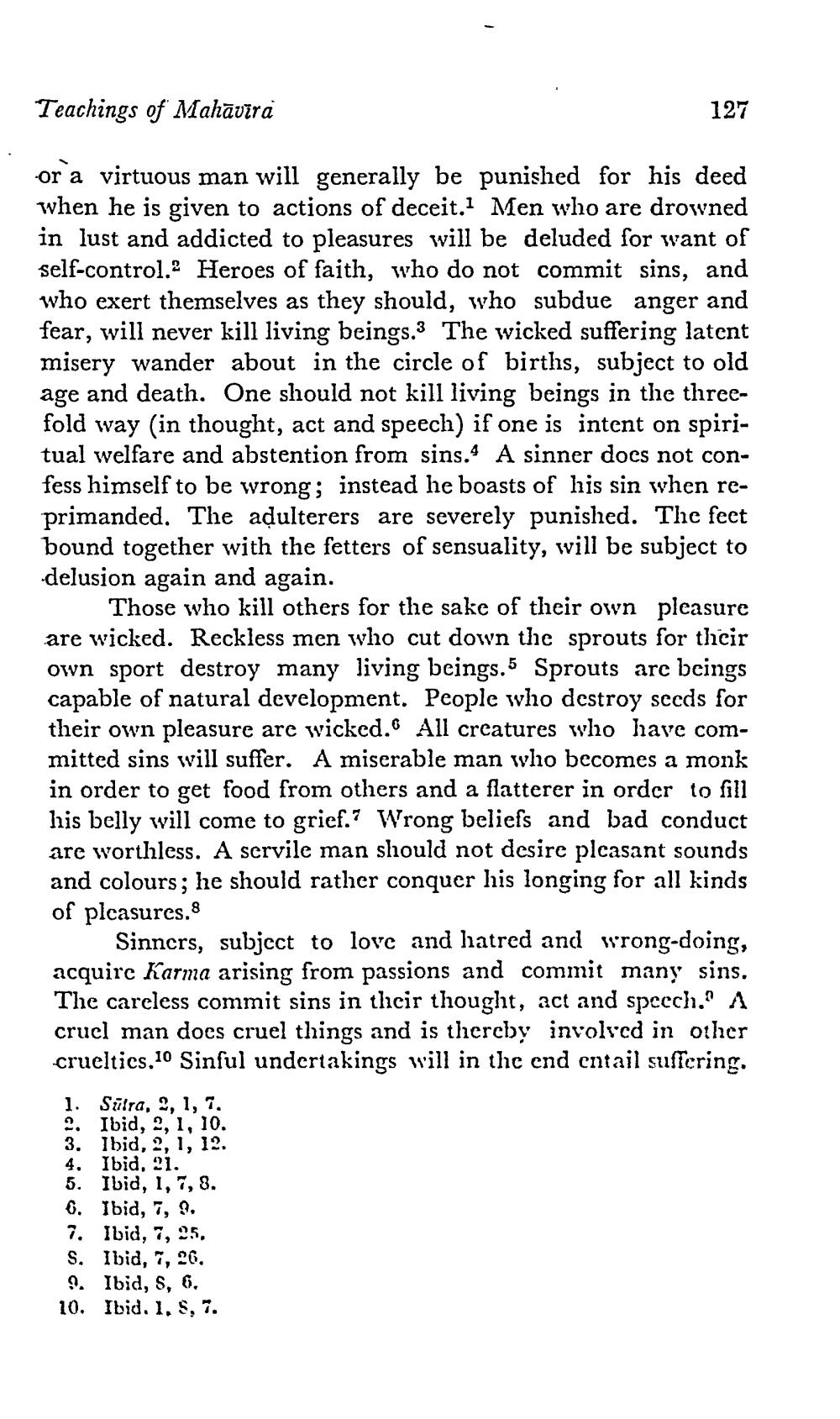________________
Teachings of Mahāvīra
127
or a virtuous man will generally be punished for his deed when he is given to actions of deceit. Men who are drowned in lust and addicted to pleasures will be deluded for want of self-control.? Heroes of faith, who do not commit sins, and who exert themselves as they should, who subdue anger and fear, will never kill living beings.3 The wicked suffering latent misery wander about in the circle of births, subject to old age and death. One should not kill living beings in the threefold way (in thought, act and speech) if one is intent on spiritual welfare and abstention from sins. A sinner does not confess himself to be wrong; instead he boasts of his sin when reprimanded. The adulterers are severely punished. The feet bound together with the fetters of sensuality, will be subject to delusion again and again.
Those who kill others for the sake of their own pleasure are wicked. Reckless men who cut down the sprouts for thicir own sport destroy many living beings. 5 Sprouts are beings capable of natural development. People who destroy sccds for their own pleasure are wicked. All creatures who have committed sins will suffer. A miserable man who becomes a monk in order to get food from others and a flatterer in order to fill his belly will come to grief.? Wrong beliefs and bad conduct are worthless. A servile man should not desire pleasant sounds and colours; he should rather conquer his longing for all kinds of plcasures.8
Sinners, subject to love and hatred and wrong-doing, acquirc Karma arising from passions and commit many sins. The careless commit sins in thcir thought, act and speech. A crucl man docs cruel things and is thereby involved in other crueltics, 10 Sinful undertakings will in the end entail suffering.
i ci
1. Sutra, 9, 1, 1,
Ibid, 2, 1, 10. 3. Ibid, 2, 1, 12. 4. Ibid, 21.
Ibid, 1, 7, 8. 6. Ibid, 7, 9. 7. Ibid, 7, 25. S. Ibid, 7, 26.
9. Ibid, s, 6. 10. Ibid. I. $, 7.




